 World Standard
Banking World Standard
Banking |

For a small island nation, Fiji has a well-developed
banking and financial system. There are five commercial
banks, namely the ANZ Bank, Westpac, Colonial National,
Bank of Baroda and Habib Bank. Financial services
are also provided by the Merchant Bank of Fiji,
Credit Corporation, Fiji Development
Bank, Fiji National Provident Fund, Home Finance
and the Housing Authority. Fiji offers Internet
banking, telephone banking, instant transmission
of funds overseas and other electronic banking services.
"Something we also need to take into account
is that the entry into our banking system is quite
deregulated," Reserve
Bank Governor Narube explains. "Anyone
can apply to establish a bank in Fiji, it is an
open country for any company to come and set up
business. In terms of development, you have to understand
that we just have come out from turbulent times
and our attention was predominantly on securing
financial stability. Now we can give more emphasis
on further development of the banking and monetary
systems". Governor
Narube says one of the most important things
the Reserve
Bank wants to do is to ask for more disclosure
of information, financial accounts and fees and
charges of all banking and financial institutions.
The Bank is also assisting in the development and
upgrading of the existing payment systems. The aim
is to establish a real time payment system, he says.
Access to credit in Fiji is looking quite attractive.
"Our interest rates are very low and there
is a lot of liquidity in the banking system that
is available for credit and, at the same time, you
have free repatriation of profits," Governor
Narube points out. "Our financial facilities
meet the needs of investors. The political stability
has been restored and this obviously helps to present
an attractive package for foreign investors. The
good position of our country certified by Moody's
has also given us confidence that there is a promising
future for the Fiji economy."
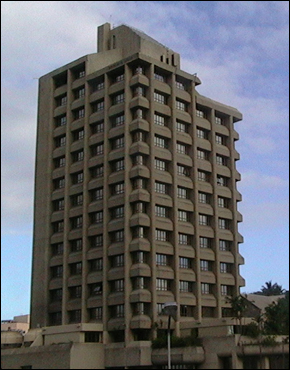
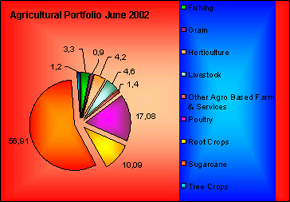
Mr. Isoa kaloumaira,
FDB's
Managing Director, describes Fiji as "a safe
place, not only for tourism but also as an investment
destination. At the FDB we have an equity scheme
meant to assist new projects and to make equity
investments, stimulating the growth and development
in the country".
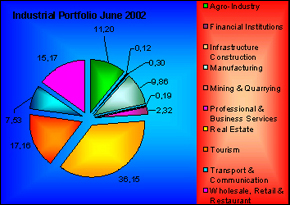
 The Super-Annuation
Super-Fund The Super-Annuation
Super-Fund |
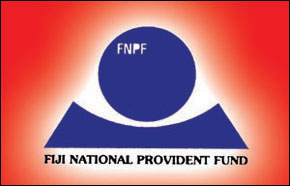
The Fiji National Provident Fund (FNPF) has become
a significant player in Fiji's financial system.
With a total investment portfolio of $1.166 billion
FJD in 1993 (@ $583m USD), this grew to $2.427 billion
in 2002 (@ $1.2135b USD). FNPF's biggest concern
is where it should invest members' money. If FNPF
General Manager Olota Rokovunisei have his way,
the Fund will keep maximizing returns. "A
strategy we adopted since 1998 is to invest offshore,
for which we need the Reserve Bank Clearance. At
the moment, there are just over $200million FJD
invested overseas both in equity and term deposits.
The reserve bank gives us an allocation every year,
which was $10 million FJD this year. The new strategies
aim to diversify in order to both increase returns
and minimize risks". But the message from
the Government is to invest more domestically, "that
is what we are trying to do while not deviating
from our investment criteria", Mr. Rokovunisei
explains, "as there appear to be many investment
opportunities around but most will not qualify under
our guidelines because of the Trustee requirements".
|
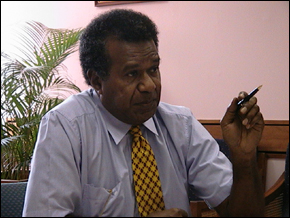
The FNPF is interested
in anything that improves the standard of living
in the country, "it is good for our members
during their working life and also in retirement.
So indirectly we are investing in infrastructure
apart from earning a return for them. We have been
assisting the Government through development loans
and securities, which in turn provided employment",
Mr. Rokovunisei clarifies. The role of FNPF, which
has also invested in Semi-Government institutions
for the provision of water, electricity and housing,
is crucial for Fiji's economy. "Fiji would
not be what it is today if it was not for the savings
accumulated in FNPF, which Government and businesses
could borrow from to create economic activities
and generate economic growth for the country and
its people". For Mr. Rokovunisei, the key
reason why the FNPF has never suffered any losses
in its investments is that "we have been
very fortunate to have a Board that has had no political
interference in its investment decisions",
besides this he explains his definition of sound
management: "When we talk about sound management
we mean efficiency and effectiveness under strict
cost control with no loss of assets". FNPF
is willing to support growth industries like tourism
and manufacturing, provided the security complies
with FNPF's requirements and "there are
also opportunities to invest in infrastructure such
as power, airports and bridges" Mr. Rokovunisei
believes "and our new strategy is to move
towards increasing our growth assets by acquiring
shares in profitable companies listed on the stock
exchange and investing more in properties both here
and abroad if necessary".
Table
The Fiji government has already announced its intention
to deregulate the country's super-annuation industry.
FNPF's 2002 annual report says the Fund continues
to show excess levels of long term funds available
for investment and has remained supportive of any
strategic thrust that would put the funds into work
in an environment where the currency and its exchange
rate has been fairly stable and inflation is low.
At the moment, there are just over $200million FJD
(@ $100m USD) invested overseas both in equity and
term deposits. Reserve Bank
of Fiji Governor Narube says that in keeping
with its objectives of maintaining soundness and
stability of the financial system, the Reserve Bank
considers it prudent to move towards the supervision
of FNPF. "As announced in the 2003 budget,
the need to include FNPF under RBF supervision is
important when considering that in 2001, 43 percent
of the total assets of the financial system were
held by the FNPF alone. The Reserve Bank's current
supervisory ambit over commercial banks, credit
institutions and the insurance industry account
for around 47 percent of the total assets of the
financial system. The inclusion of FNPF in this
supervisory ambit will allow the Reserve Bank to
supervise a major portion of the financial system
thus enabling it to effectively perform its role,
under the RBF Act, of promoting a sound financial
structure", Mr.
Narube points out.
David Aidney, President of the Fiji
Employers Federation, says that one of the difficulties
which the FNPF has to overcome is "its inability
to freely invest offshore and locally. Our FNPF
has over $2 billion FJD (@ $1b USD) in members'
funds and the question is often asked: Why can't
these funds be used for many of the new projects
and developments?". FEF's recommendation
is that the 50 percent contribution made by the
employer should be held in trust for retirement
whilst the remaining 50 percent can be made available
to the employee for school fees, medical expenses
or housing loans, "alternatively",
he adds, "they could be given the opportunity
to withdraw those funds to invest in companies on
the Stock Exchange". Minister
For Finance and national planning, Ratu Jone Kubuabola,
says that "the major sectors of the economy
are steadily improving with positive outlook projected
over the next few years. The Government focuses
on promoting conditions for investment by taking
up the pro-business and pro-investor approach. In
a nutshell, Fiji is already home to the South Pacific
Stock Exchange and is preparing itself to be the
financial, economic and political hub of the South
Pacific Region".
 Growing
List Of Companies Going Public Growing
List Of Companies Going Public |
When Amalgamated Telecom Holdings
Limited, one of Fiji's largest companies, joined
the South Pacific Stock
Exchange, the exchange's capitalisation tripled
by an additional $400m FJD (@ $200m USD). Overnight,
the stock exchange in Fiji grew from being the smallest
in the world to the second smallest. A small step
perhaps from the global perspective, but a huge
one for Fiji as it is the only one in this part
of the Pacific. Governor Narube believes the development
was a huge step forward for the island economy.
"I cannot give any names but we are hoping
that two or three more companies will join this
year", Narube says, "we encourage
them to do so as our stock exchange has grown significantly
in the last ten years. We intend to continue that
growth by introducing new products into the market
and getting more companies listed". No
taxes on dividends and no stamp duties are incentives
for being listed. These are the two most important
advantages that are available to listed companies.
Local business tycoon Hari Punja is full of praise
about the capitalisation work of the Stock Exchange.
When he left his family company, he did not have
much money so he approached the SPSE. "It
has helped me a lot in the process. Flour Mills
started in 1980, the Fiji Dollar invested in that
day is now worth $55 FJD. I floated the rice company
in 1999 at 50 cents and today it is $2 FJD."
|

